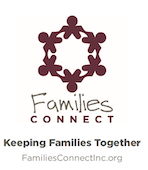Minority Mental Health Month
July was designated as Minority Mental Health Awareness Month in 2008 to bring awareness to the unique struggles that underrepresented groups face in regard to mental illness in the United States (US).
Mental health doesn’t discriminate based on race, color, gender or identity. Every year millions of Americans face the reality of living with a mental health condition, but background and identity can make access to mental health treatment much more difficult. When trying to access treatment, marginalized communities have to contend with numerous barriers such as: access to treatment, language, lack of cultural competence, racism, bias, discrimination in treatment settings, lower-quality care and often times a belief that treatment will not help.
Below are some mental health facts from the Office of Minority Health – 2017:
• Over 70% of Black/African American adolescents with a major depressive episode did not receive treatment for their condition. • Almost 25% of adolescents with a major depressive episode in the last year were Hispanic/Latino.
• Asian American adults were less likely to use mental health services than any other racial/ethnic groups.
• In the past year, nearly 1 in 10 American Indian or Alaska Native young adults had serious thoughts of suicide.
The Center’s Mental Health Publications


